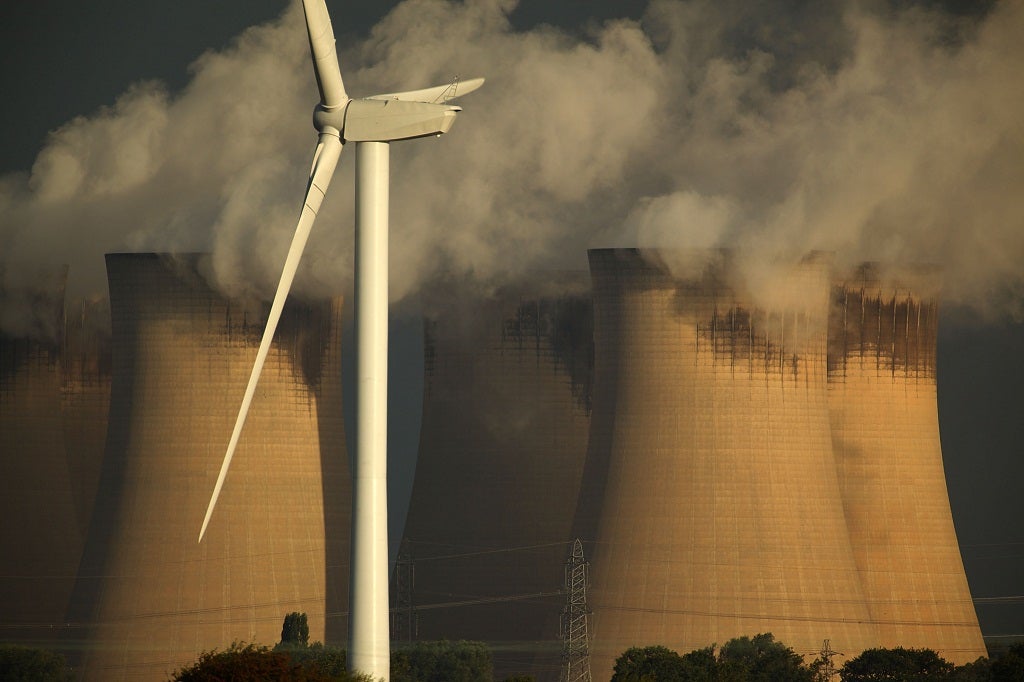We've toppled the turbines in Norfolk. But we had to go round the houses
Our national energy policy is big on emotion and hot-air, but small on common sense

While senior figures in the Government were making fools of themselves on their bikes or on trains, a rather more significant muddle has just been exposed. Few things matter more for our future than how energy will be supplied as fossil fuels run out, and yet one government after another flails uncertainly about the issue.
One moment, a cheerfully free-market approach is favoured, the next – as exemplified last week by David Cameron – government decides that it should control the excesses of the ruthless energy sector. As conventional power stations approach the end of their lives, and while consumers’ bills rise, confusion surrounds the whole question of future power.
None of which will be the slightest surprise to those of us who have seen how the new rush for energy works at a local level. By a small coincidence of timing, the latest Whitehall muddle occurred almost on the same day as the resolution of a smaller, more local uncertainty. After six long years, punctuated by reports and rows, meetings of the planning committee of the local council and finally a lengthy, lawyered-up hearing in front of a government planning inspector, it has been announced that to site three giant wind turbines just outside a south Norfolk village, dwarfing a Norman church and an unspoilt landscape, is not a good idea – officially and definitively.
With the relief and elation of victory comes a certain anger. Here is where the free market leads us, when it is bolstered by public subsidies and supported by a vague but powerful public mood that any kind of renewable energy, however inefficient and badly sited, is by its nature a moral good.
The would-be development over which millions have spent, causing untold stress and division among residents, was not selected by any public process. A landowner with an eye to the main chance contacted an ambitious energy firm. Because there was no overt restriction in the local landscape sensitivity study, they went ahead.
It must have made business sense to both of them, but it was always a ridiculously stupid place to put giant turbines. Houses were close by. The landscape chosen was an important amenity for the local community. A village church would be blighted. Unless it is now thought that human lives and the quality of countryside can, by the general nature of things, count for nothing beside the demands of energy, the plan should have been a non-starter.
Yet, with a less committed group of local people, and a less responsive local council, it could well have gone ahead. Such is the pressure on the key quangos which are asked to give their expert opinion on these applications that organisations like Natural England and English Heritage have, when considering this kind of development, an in-built bias against the very landscape, wildlife and local culture they are charged to protect.
In the case of this development, none had any objection, but the local planning committee, consisting of Conservatives and Liberal Democrats, rejected it unanimously. The energy company appealed to the Government’s planning inspectorate. Last week, the planning inspector supported the council.
Some might say the system has worked. Developers pursued profit; the local council and the planning inspector reined them in. But what an extraordinarily wasteful and unpleasant process it has been.
Hundreds of thousands of pounds must have been spent, millions of words written, countless hours spent so that we can all arrive back where we were six years ago. During that period, those arguing – rightly as it now turns out – on behalf of local lives and landscape have been vilified as selfish, while self-serving entrepreneurs have presented themselves as be-suited eco-warriors. It has been a bitter struggle which has divided the community.
Perhaps to others it may seem little more than an everyday story of local life, but right now it feels like a tiny, village-sized metaphor for a national energy policy which is big on emotion and hot air, but small on practicality and common sense.
Oddly happy books, about men
If, as Iris Murdoch once said, a novelist is “a dog sniffing the air before an earthquake”, then a startling development in American fiction should give us hope. Two of the most extraordinary new novels, Helen DeWitt’s Lightning Rods and AM Homes’s May We Be Forgiven, share little by way of theme – one a satire of sex and office life, the other a helter-skelter story of domestic disaster and redemption. Both writers, though, are women who tell their stories from the viewpoint of beleaguered middle-aged men. They are portrayed – I can hardly believe I am writing this – affectionately. The Murdochian earthquake is most unexpected. Could it be that fiction’s next big thing is optimism?

Join our commenting forum
Join thought-provoking conversations, follow other Independent readers and see their replies